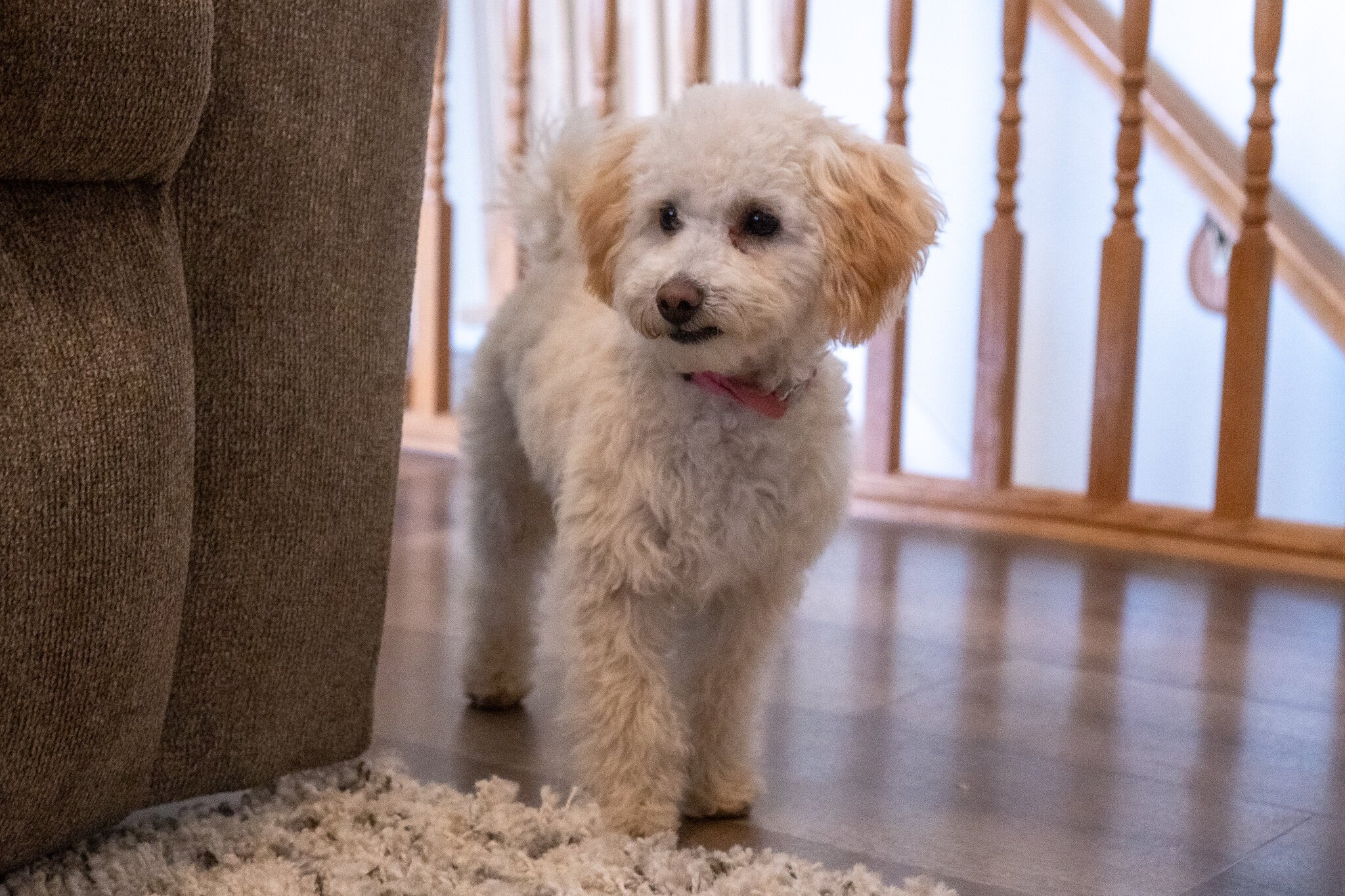Understanding Maltipoo Health: A Comprehensive Guide to Common Health Concerns and Care
Welcoming a Maltipoo into your life is a joyous occasion. These adorable bundles of fur are known for their playful demeanor and loving companionship. However, responsible ownership goes beyond the joy and fun that these pets bring. It also involves a commitment to their health and well-being. As potential or new Maltipoo owners, understanding the unique health needs and challenges of this breed is vital. This article will delve into common health issues, the role of genetic testing, the importance of pet insurance, nutritional needs, grooming, and the influence of training and socialization on your Maltipoo's health. Join us as we explore how to give your Maltipoo the best care for a long, happy, and healthy life.
Remember that any dog is prone to health issues. Not all of them are avoidable, but some can be prevented by taking proper care of your dog. Some health problems are due to the size of the breed, and some are simply due to genetics. Maltipoos have a relatively long lifespan compared to some other breeds. On average, a healthy Maltipoo’s lifespan is between 12 to 16 years. This lifespan can be influenced by several factors, including diet, exercise, overall care, and genetic health issues.
Common Health Issues in Maltipoos
While Maltipoos are generally a healthy breed, like all dogs, they are susceptible to certain health issues. Knowledge of these potential problems can help you detect symptoms early and seek timely veterinary care.
*Not all Maltipoos will get any or all of these diseases, but it is important to be aware of these conditions:
Patellar Luxation: This is a common condition in small dogs where the kneecap dislocates or moves out of its normal position. Symptoms may include limping or an abnormal gait.
Progressive Retinal Atrophy (PRA): This inherited disease causes the gradual deterioration of the retina, leading to compromised vision and, eventually, blindness.
White Shaker Syndrome: Characterized by body tremors, this condition typically affects small, white dog breeds. While the cause is unknown, it's generally treatable with medication.
Hip Dysplasia: Although less common in small breeds, some Maltipoos may inherit this condition, where the hip joint doesn't fit together perfectly, leading to potential discomfort and mobility issues.
Allergies: Maltipoos can suffer from various allergies, including food allergies, contact allergies, and inhalant allergies. Signs can include scratching, skin irritation, or digestive issues.
Dental Problems: Due to their small mouths, Maltipoos can be prone to overcrowding of teeth and consequent dental problems, including gum disease and tooth decay.
Epilepsy: causes seizures in the dog. A dog can still live a full and happy life with this condition if properly treated and cared for.
Legg-Calve-Perthes Disease: this is a congenital degeneration of the bone ends in the hips that affects many toy breeds. Usually, the first signs occur when puppies are 4 to 6 months old.
Our Genetic testing plays a significant role in minimizing the risk of inherited diseases. Reputable breeders should conduct such testing to ensure they're not breeding dogs with inheritable health issues. This highlights the importance of choosing a responsible breeder when getting a Maltipoo. Despite these potential issues, remember that each Maltipoo is an individual, and not every dog will develop these health conditions. Regular veterinary check-ups can go a long way in detecting and managing health issues early on, ensuring your Maltipoo leads a comfortable and healthy life.
Identifying a Healthy Maltipoo
Determining the health of your Maltipoo involves observing their physical and behavioral traits. A healthy Maltipoo typically has clear, bright eyes, a clean coat, and a good appetite. They should also be active and show a keen interest in their surroundings. Regular vet check-ups are vital to ensure your Maltipoo's well-being, as the vet can help identify and address any potential health issues early.
Leading Cause of Death in Maltipoos
While Maltipoos are generally healthy dogs, they can be susceptible to certain health issues that can lead to death if not addressed early. These include issues like progressive retinal atrophy (a degenerative eye disease), mitral valve disease (a heart condition), and epilepsy. However, it's important to note that with regular check-ups and early detection, many of these conditions can be managed effectively.
Importance of Pet Insurance
Pet insurance is a crucial consideration for any pet owner. It can significantly alleviate the financial stress associated with unexpected illnesses or accidents. This is particularly relevant during the early days with your Maltipoo, as young puppies are yet to be fully vaccinated and can be vulnerable to diseases.
Coverage of Unexpected Health Issues: The first 30 days after bringing your Maltipoo home can be a particularly vulnerable time. They may pick up infections like Parvo or Giardia, especially in places with many other dogs, like airports. Treating these conditions can be costly, and having pet insurance provides financial relief in such scenarios.
Peace of Mind: Pet insurance like Trupanion, which provides a free 30-day coverage for new pets, allows you to focus on caring for your Maltipoo rather than worrying about potential vet bills. It offers the peace of mind knowing that you can afford to provide your pet with the best possible care.
Flexibility: Most pet insurances allow you to cancel or adjust your coverage later. As such, you might choose to only use the insurance during high-risk periods or continue it for long-term coverage.
Future Health Conditions: Some breeds, including Maltipoos, can be prone to specific health conditions. Insurances can help cover the costs of managing these conditions, which can sometimes be significant.
Remember, pet insurance is not about profiting or saving money, but about managing risk. Having pet insurance ensures that if your Maltipoo requires expensive medical treatment, the cost will not prohibit you from accessing the necessary care.
Nutrition for Your Maltipoo
The nutrition of your Maltipoo is a significant aspect of their overall health. Proper feeding practices and a balanced diet contribute to a healthy weight, a strong immune system, and even longevity.
Balanced Diet: A well-balanced diet for Maltipoos should include proteins, carbohydrates, fats, vitamins, and minerals. The ideal diet should have a good amount of high-quality animal protein to support growth and muscle development.
Feeding Schedule: Puppies usually require small, frequent meals. Once your Maltipoo reaches adulthood, you can generally feed them twice a day.
Choosing the Right Food: When selecting a brand of dog food, look for those that have high-quality ingredients and avoid those with excessive fillers. Some Maltipoos may have food allergies or sensitivities, so it may take some trial and error to find the most suitable food.
Hydration: Always ensure that your Maltipoo has access to fresh, clean water.
Obesity Prevention: Maltipoos are prone to obesity, which can lead to other health problems. Keep a close eye on their weight, avoid overfeeding, and ensure they get plenty of exercise.
Consult Your Vet: Your vet can provide specific dietary advice tailored to your Maltipoo's age, size, activity level, and health status.
Remember, feeding your Maltipoo high-quality food in the right quantities is an investment in their long-term health. An optimal diet can help prevent health issues and provide your pet with a happier, healthier life.
Grooming for Health
Proper grooming isn't just about keeping your Maltipoo looking their best; it also plays a key role in their overall health and well-being. Regular grooming sessions can help you detect early signs of health issues, from skin problems to potential infections.
Brushing: Regular brushing not only keeps your Maltipoo's coat clean and mat-free but also stimulates blood flow to their skin. Brushing can help you notice any changes in their skin or coat that may need attention.
Bathing: Bathing your Maltipoo every 1-2 weeks can help maintain healthy skin and a clean coat. Use a dog-safe shampoo and conditioner, like the Isle of Dogs brand, to avoid skin irritation.
Eye and Ear Care: Maltipoos can be prone to ear infections and eye issues. Regular cleaning can help prevent these conditions. Always look out for redness, unusual discharge, or signs of discomfort.
Dental Care: Regular teeth cleaning is crucial to prevent dental diseases. Brushing your dog's teeth or using dental chews can help maintain oral health.
Nail Trimming: Overgrown nails can be uncomfortable and even painful for your Maltipoo. Regular trimming or grinding helps prevent this.
Professional Grooming: A professional groomer familiar with the Maltipoo breed can be a valuable partner in maintaining your dog's health.
Through regular grooming, you not only ensure your Maltipoo's comfort but also reinforce your bond with them while promoting their overall health.
Training and Socialization
Effective training and comprehensive socialization play an integral role in a Maltipoo's health and well-being. They foster mental stimulation, help manage energy levels, and build confidence, reducing behavioral issues that could potentially impact their health.
Training: From basic obedience commands to house training, proper instruction helps shape a well-behaved, balanced dog. Training also provides mental stimulation, which is crucial for this intelligent breed. Using positive reinforcement methods works best with Maltipoos, encouraging them to learn while nurturing a positive association with training sessions.
Socialization: Exposing your Maltipoo to a variety of environments, people, and other animals from an early age is vital for their development. It can help prevent fear-based behaviors and potential aggression issues. Socialization also helps your Maltipoo become a well-adjusted adult dog, capable of handling various situations with ease.
Exercise: Regular exercise helps maintain a healthy weight and muscle tone, essential for overall health. Additionally, physical activities help channel the Maltipoo's energy, reducing unwanted behaviors like excessive barking or chewing.
Mental Stimulation: Given their Poodle ancestry, Maltipoos are intelligent dogs that thrive on mental challenges. Interactive toys, puzzle feeders, and regular training can keep their minds sharp.
Positive Reinforcement: Praising good behavior with treats, toys, or affection helps your Maltipoo learn effectively and fosters a strong bond between you and your pet.
Implementing a consistent training and socialization routine from an early age will not only make your Maltipoo a joy to live with but will also contribute to their overall health and longevity.
Conclusion
Caring for your Maltipoo involves understanding their health issues, ensuring proper nutrition, maintaining grooming routines, and incorporating regular training and socialization. Early insurance coverage with Trupanion provides financial support during the vulnerable initial period when your pet isn't fully vaccinated. A proactive approach to your Maltipoo's health, encompassing all these elements, sets the stage for a long, healthy life for your pet.











